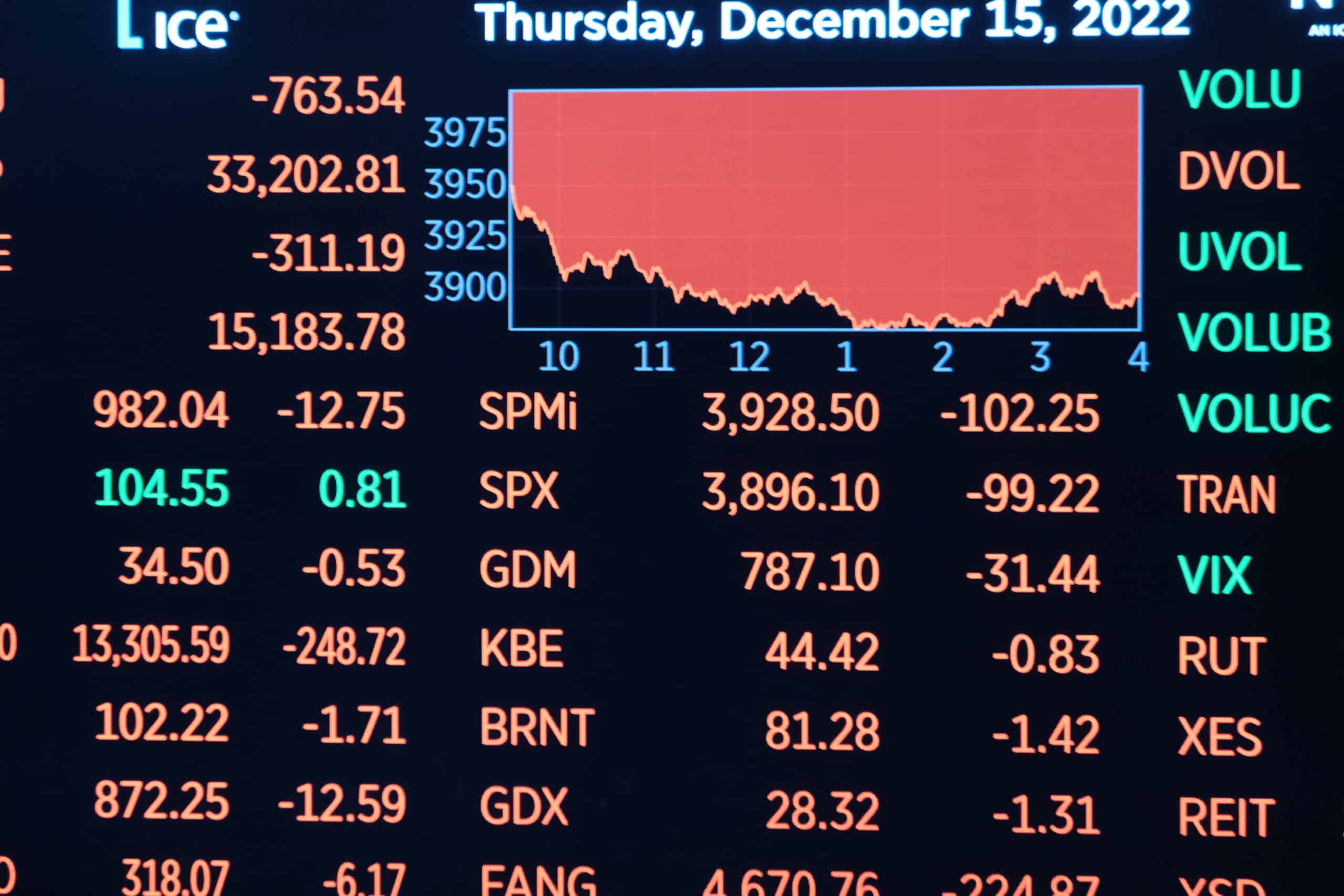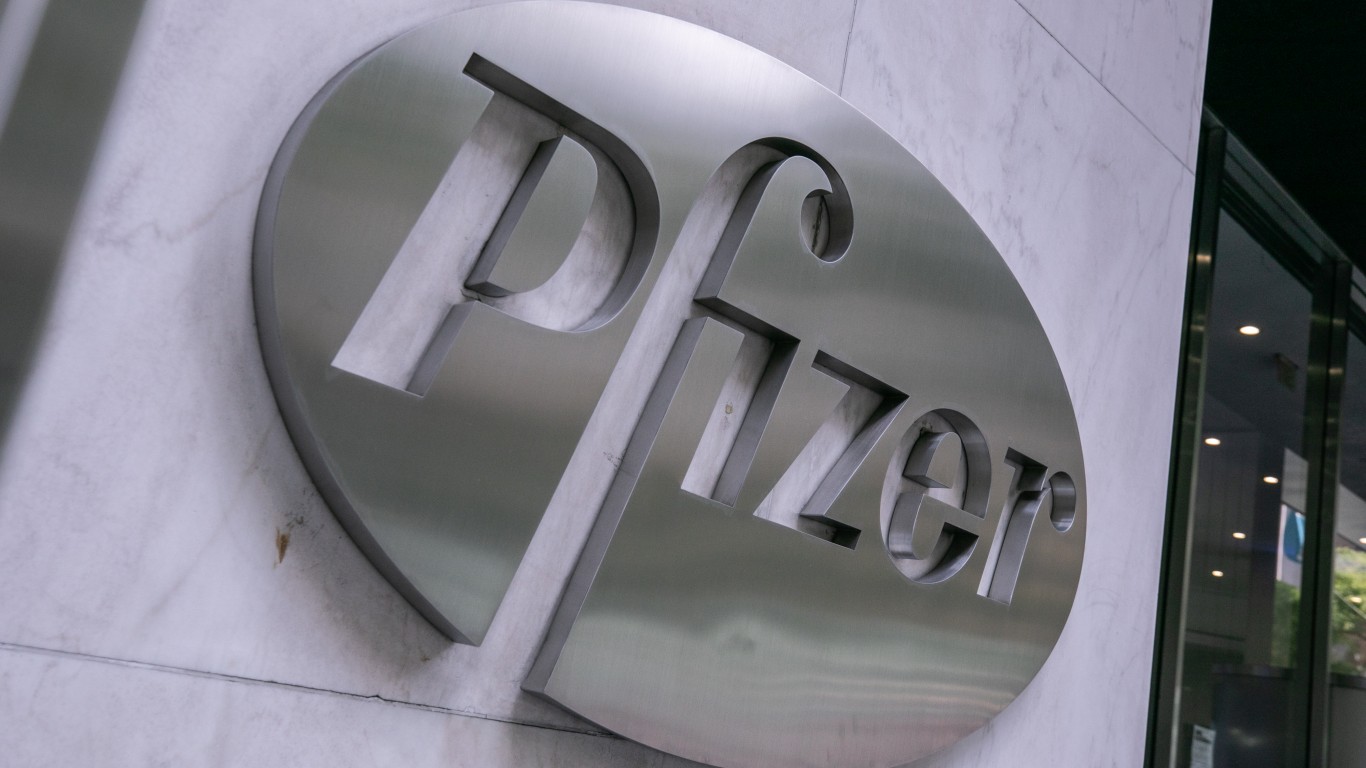
In recent years, International Business Machines Corporation (NYSE: IBM) has struggled financially and competitively. Here are 6 reasons 24/7 Wall St. takes a bearish stance on the stock as it looks fundamentally unattractive at this time.
1. Prolonged decline in profits

International Business Machines Corporation has seen its financial performance deteriorate over the past several years. From 2020 to 2022, IBM’s revenue increased by 9.8%, rising from $55.18 billion to $60.53 billion, which represented its third straight year of increasing revenue. Over that same period, its net income tumbled from a profit of $3.93 billion to $1.78 billion, a 54.7% decrease.
This prolonged slump in its bottom line results has raised questions about the viability of IBM’s business model. Its core businesses, including IT infrastructure, software, and consulting, have come under assault from both well-established players and startup rivals. Its inability to keep up with the rapidly shifting technology landscape has caused it to hemorrhage market share and for its profitability to deteriorate. IBM is tech’s most beaten-down company.
2. Falling behind in the AI race

IBM has been a pioneer in artificial intelligence (AI) with its Watson platform, but it has struggled to maintain its leadership position due to intense competition. Rivals such as Microsoft Corporation (NASDAQ: MSFT), Amazon.com, Inc. (NASDAQ: AMZN), and Alphabet Inc. (NASDAQ: GOOG), Meta Platforms, Inc. (NASDAQ: FB) have made massive investments in AI and machine learning, which are now being widely adopted in both enterprise and consumer applications. IBM’s Watson has been unable to keep up and “Microsoft’s Azure, Google’s Cloud AI, and Meta’s PyTorch have wider circulations,” according to Samuelson.
IBM’s deteriorating competitive position in AI, a critical growth area, is a huge problem for the company as it attempts to jump-start revenue growth. The company’s inability to keep pace with rapidly evolving AI technology and the ascendance of its competitors raise worries about its long-term viability in this important market.
3. IBM’s debt load

High debt levels compromise IBM’s financial flexibility. IBM has a significant debt burden, totaling over $54 billion at its latest quarterly filing. The company’s debt-to-equity ratio is over 71% — a level that prompted Fitch Ratings to downgrade IBM’s credit rating to BBB+ with a negative outlook in 2021. Fitch cited IBM’s persistently high debt levels and inconsistent free cash flow generation as areas of concern.
In addition, IBM’s sizeable debt load limits the company’s ability to invest in new technologies and growth initiatives. Declining revenue and rising operating expenses have constrained IBM’s cash flow, so the company has struggled to reduce its debt and improve its financial leverage IBM’s high debt burden constrains the company’s financial recovery and long-term growth.
Traders and investors should also master top-down industry analysis on IBM stock to see how the stock stacks up against its competitors, and also to uncover the best trading and investing opportunities to place in their portfolios right now.
4. Declining market share in key industries

In addition to suffering from revenue declines, IBM has experienced falling market share in several key industries. Its server business has ceded substantial share to competitors like Dell Technologies Inc. and Hewlett Packard Enterprise (NYSE: HPE). The mainframe division, once a significant driver of revenue growth, has been under pressure due to the development of cloud computing and hyperscale data centers. IBM’s infrastructure services business has been failing to keep up with the AWS, Azure, and Google Cloud cloud-first offerings.
This loss of market share across multiple segments only hurts IBM’s prospects for growth and profitability. Its failure to pivot and adjust to the new era of cloud computing has led to a severe fall from relevance and market position.
5. Outdated business model and lack of innovation

IBM’s outdated business model is made all the more so by the rapid advancement of technology. The company has been slow to adapt to newer technology trends, like cloud computing, artificial intelligence, and blockchain. Its reliance on traditional revenue streams and legacy businesses has put it in a precarious position as market dynamics shift.
IBM is experiencing multiple long-term headwinds that suggest the company’s turnaround isn’t guaranteed. First, IBM ended 2017 with falling international revenues and the prospect of even more international troubles should the dollar strengthen further. More broadly, revenue from IT infrastructure products (which the company relies on as part of its bulwark against new market trends) was flattish in late 2017, and declining in constant currency terms. IBM hasn’t produced a Bezos-like breakthrough in artificial intelligence paid for by its cloud business, and its research and development spending is in long-term decline. The company has been dogged by continuous questions about the necessity of the management’s Moonshot ideas and its high debt burden as the company chooses financial engineering instead of market engineering.
6. Slowing earnings growth

IBM’s earnings growth has slowed sharply over the last handful of years. IBM saw its earnings per share growth rate decline 63.15% from 2021 to 2022. The company is really going to need to start turning things around before shareholders can simply ignore its lackluster earnings performance over the 2021-2022 period.
Final thoughts

It is very important for investors to be cognizant of these financial and competitive challenges facing IBM when considering any investment decisions. The company’s long-term decline in revenues and profits, falling behind in artificial intelligence, heavy debt load, market share woes in key industries, outdated business model, lack of innovation and same-old $20 billion in buybacks, as well as stagnant dividends, raise significant issues about whether IBM can regain any sustainable growth trajectory.
The bottom line is that until such time as IBM shows it has a clear path to address these many issues, 24/7 Wall St. sees shares of IBM as unattractive for long-term value investors with a multi-year horizon at least. Investors may at least want to see just how lame the duck above is, against how promising many up-and-coming tech stocks have been of late against Big Blue.
Take Charge of Your Retirement In Just A Few Minutes (Sponsor)
Retirement planning doesn’t have to feel overwhelming. The key is finding expert guidance—and SmartAsset’s simple quiz makes it easier than ever for you to connect with a vetted financial advisor.
Here’s how it works:
- Answer a Few Simple Questions. Tell us a bit about your goals and preferences—it only takes a few minutes!
- Get Matched with Vetted Advisors Our smart tool matches you with up to three pre-screened, vetted advisors who serve your area and are held to a fiduciary standard to act in your best interests. Click here to begin
- Choose Your Fit Review their profiles, schedule an introductory call (or meet in person), and select the advisor who feel is right for you.
Why wait? Start building the retirement you’ve always dreamed of. Click here to get started today!
Thank you for reading! Have some feedback for us?
Contact the 24/7 Wall St. editorial team.





